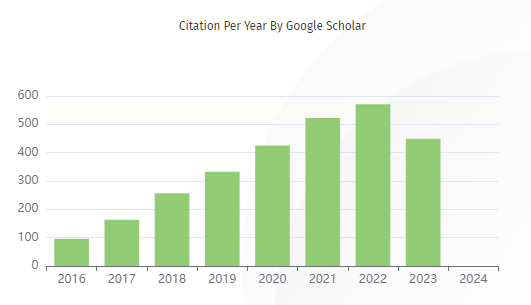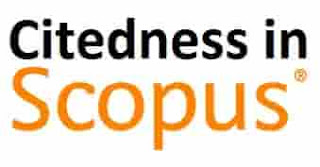Building Knowledge Sharing Intention with Interpersonal Trust as a Mediating Variable
DOI:
https://doi.org/10.12695/jmt.2016.15.1.5Abstract
Abstract. Knowledge sharing is a key aspect of knowledge management activities. The purpose of this study is to investigate the effect of personal competence on knowledge sharing intention which mediated by interpersonal trust. The data were collected from student's Postgraduate Program Universitas Negeri Semarang as many 146 in numbers. Analysis path was proposed for measuring effect of cultural intelligence and self-efficacy on knowledge sharing intention. The role of interpersonal trust as mediation was being measured too. The results show that the cultural intelligence which is owned by an individual will lead to trust among individuals and then to share one's knowledge, also the person who have self-efficacy will increase his desire to share knowledge with fellow students. All hypothesis supported except cultural intelligence, which was unsupported affect the willingness to share knowledge.
Keywords: cultural intelligence, self-efficacy, interpersonal trust, knowledge sharing intention.
Abstrak. Proses berbagi pengetahuan merupakan aspek kunci dalam manajemen pengetahuan. Penelitian ini bertujuan untuk mengetahui pengaruh kompetensi individu dan kepercayaan pada keinginan berbagi pengetahuan. Data dalam penelitian ini diambil dari mahasiswa Pascasarjana Unnes sebanyak 146 mahasiswa. Model analisis jalur diajukan guna melihat pengaruh kecerdasan budaya dan efikasi diri secara langsung pada keinginan berbagi pengetahuan. Peran mediasi kepercayaan antar individu diukur untuk menjadi perantara hubungan tidak langsung. Hasil menunjukkan bahwa kecerdasan budaya yang dimiliki oleh seorang individu akan menimbulkan kepercayaan antar individu untuk saling berbagi pengetahuan dan efikasi diri seseorang akan meningkatkan keinginannya untuk berbagi pengetahuan dengan sesama mahasiswa. Semua hipotesis terdukung kecuali kecerdasan budaya yang tidak terdukung mempengaruhi keinginan berbagi pengetahuan.
Kata Kunci: kecerdasan budaya, efikasi diri, kepercayaan antar individu, keinginan berbagi pengetahuan.
Downloads
References
Ajzen, I. (2002). Perceived behavioral control, self-efficacy, locus of control, and the theory of planned behavior. Journal of Applied Social Psychology, 22(4), 665-683.
Ang, S., & Van Dyne, L. (2008). Conceptualization of cultural intelligence, definition, distinctiveness, and nomological network. S. Ang and L. Van Dyne (Ed), Handbook of cultural intelligence: theory, measurement, and applications. New York: M.E Sharpe. Hal: 3-15.
Bandura, A. (1997). Self efficacy: the exercise of control. New York: W.H. Freedman and Company.
Bock, G.W., Zmud, R.W., Kim, Y.G., & Lee, J.N.(2005). Behavioral intention formation in knowledge sharing: examining the roles of extrinsic motivators, social-psychological forces, and organizational climate. MIS Quarterly 29 (1): 87-111.
Chou, Y. M. (2012). Virtual teamwork and human factors: a study in the cross-national environment. [Thesis]. RMIT University, Australia.
Chen, M.L., & Lin, C.P. (2013). Assessing the effects of cultural intelligence on team knowledge sharing from a socio-cognitive perspective. Human Resources Management ,52(5), 675-695.
Chen, G., Gully, S.N., & Eden, D. (2001). Validation of a new general self-Efficacy scale. Organizational Research Methods, 4 (1), 62-83. Sage Publications, Inc.
Chua, R.Y.J., Morris, M.W., & Mor, S. (2012). Collaborating across cultures: cultural metacognition and affect-based trust in creative collaboration. Organizational Behavior and Human Decision Processes, 116-131
Earley, P.C., & Ang, S. (2003). Cultural intelligence: individual across culture. California: Stanford University Press.
Goh, S. K., & Sandhu, M.S. (2013). Knowledge sharing among Malaysian academics: influence of affective commitment and trust. Electronic Journal of Knowledge Management, 11(1),38-48.
Gregory, R., Prifling, M., & Beck, R. (2009). Managing cross-cultural dynamics in it offshore outsourcing relationships: the role of cultural intelligence. Second Information Systems Workshop on Global Sourcing: Services. Knowledge and Innovation, 1-25.
Hauge, B. (2012). Characteristics of expatriates' knowledge sharing practices in a humanitarian organization. [Thesis]. BI Norwegian Business School.
Hosseini, S. A., Bathaei, S.M., & Mohammadzadeh, S. (2014). Does self-efficacy effect on knowledge sharing intention in e-learning system? a motivational factor analysis in open University Malaysia (oum). Kuwait Chapter of Arabian Journal of Business and Management Review, 3(11), 35-46.
Hsu, Y.S. (2012). Knowledge transfer between expatriates and host country nationals: a social capital perspective. [Thesis]. University of Wisconsin-Milwaukee.
Kramer, R. M. (2010). Trust barriers in cross-cultural negoitations: a social psychological analysis. Saunders, Mark N. K. et al. (Ed). Organizational Trust: A Cultural Perspective. Hal: 182-204 New York: Cambridge University.
Li, W. (2010).Virtual knowledge sharing in a cross-cultural context. Journal of Knowledge Management ,14 (1): 38-50
Li, Ye., Li, H., Mädche, A., & Rau, P.L.P. (2012). Are You a Trustworthy Partner in a Cross-cultural Virtual Environment? – Behavioral Cultural Intelligence and Receptivity-based Trust in Virtual Collaboration. Session: Intercultural Communication: 87-96.
Li, C.Y. (2012). Does self-efficacy contribute to knowledge sharing and innovation effectiveness? a multi-level perspective. National Taichung University of Technology and Science, Taiwan.
McAllister, A. J. (1995). Affect and cognition- based trust as foundations for interpersonal cooperation in organizations. Academy of Management Journal ,38 (1), 24-59.
Messarra, L.,Karkoulin, S., & Younes, A. (2008).Four facets of cultural intelligence predictors of knowledge sharing intentions. Review of Business Research, 8(5), 26-131.
Noh, J.H.(2013). Employee knowledge sharing in wor teams: effect of team diversty, emergent states, and team leadership. [Thesis]. University of Minnesota
Nonaka, I., & Konno, N. (1998). The concept of “Baâ€: building a foundation for knowledge creation. California Management Review, 40 (3), 40-54.
Park, M.J., Lambazar,T.D.U., & Rh, J.J . (2015). The effect of organizational social factors on employee performance and the mediating role of knowledge sharing: focus on e-government utilization in Mongolia. Information Development , 31 (1): 53-68
Powell, W. W., & Snellman, K. (2004). The Knowledge Economy. Annu. Rev. Sociol, 30, 199-220.
Preacher, K. J., & Hayes, A.F. (2004). SPSS and SAS procedures for estimating indirect effects in simple mediation models. Behavior Research Methods, Instruments, & Computers, 36(4), 717-731.
Putranto, N.A.R., & Ghazali, A. (2013). The effect of cultural intelligence to knowledge sharing behavior in university students. School of Business and Management ITB, Bandung:1-9.
Rockstuhl, T., & K.Y Ng. (2008). The effects of cultural intelligence on interpersonal trust in multicultural teams. S. Ang and L.V Dyne (Ed) Handbook of cultural intelligence: theory, measurement, and
applications. Hal: 206-220 New York:M.E Sharpe, Inc.
Salmon, E.D., Gelfand, M.J., Celik, A.B., Kraus, S., Wilkenfeld, J., & Inman, M. (2013). Cultural contingencies of mediation: effectiveness of mediator styles in intercultural disputes. Journal of Organizational Behavior, 34, 887-909.
Vajjhala, N. R., & Vucetic, J. (2013). Key barriers to knowledge sharing in medium-sized enterprises in transition economies. International Journal of Business and Social Science, 4(13), 90-98
Wang, S., & Noe, R.A (2010). Knowledge sharing: a review and directions for future research.Human Resource Management Review, 20, 115–131.
Wang, H.K., Tseng, J.F., & Yen, Y. F.(2014). How do institutional norms and trust influence knowledge sharing? An institutional theory. Innovation: Management, Policy & Practice ,16, 374-391.
Young, M. L. (2014). The formation of concern for face and its impact on knowledge sharing intention in knowledge management systems. Knowledge Management Research & Practice, 12,36-47.
Zawawi, A. A., Zakaria, Z., Kamarunzaman, N.Z., Noordin, N., Sawal, M.Z.H.M., Junos, N.M., & Najid, N.S.A. (2011). The Study of Barrier Factors in Knowledge Sharing: A Case Study in Public University. Management Science and Engineering, 5(1),59-70.
Downloads
Submitted
Accepted
Published
How to Cite
Issue
Section
License

This work is licensed under a Creative Commons Attribution-NonCommercial-ShareAlike 4.0 International License. Copyright @2023. This is an open-access article distributed under the terms of the Creative Commons Attribution-NonCommercial-ShareAlike 4.0 International License (http://creativecommons.org/licenses/by-nc-sa/4.0/) which permits unrestricted non-commercial used, distribution and reproduction in any medium.

















